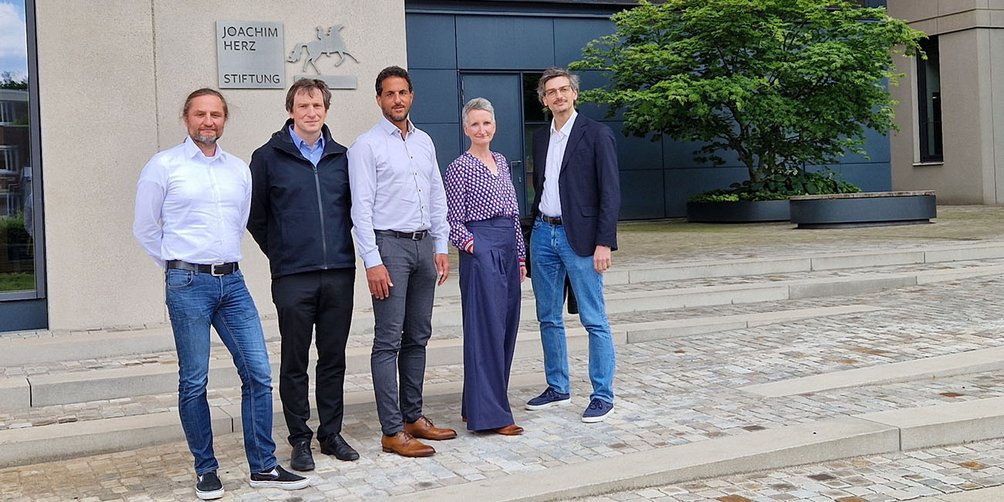Focus on sustainable materials technologies
The first "innovate! Center" of the Joachim Herz Foundation will be established at the University of Bremen.

Three pilot projects at the University of Bremen will develop sustainable solutions to technological challenges. These deal with stationary energy storage for renewable energies, sustainable fodder for aquaculture and sensor materials for an environmentally friendly and safe hydrogen economy.
The "innovate! Center" intends to show how systemic transfer structures can be developed and established at universities as a role model. Top researchers will find an ideal environment in which to realize their projects and make the results achieved usable for society and the economy.
With the "innovate! Center MaTeNa" - an abbreviation for materials - technologies – sustainability - the University of Bremen aims to leverage the potential of innovative materials to develop sustainable solutions to technological challenges. We will fund the center with up to 30 million euros over a maximum period of ten years.
Three goals using sustainable materials technologies
The production of rechargeable aqueous zinc-ion batteries is to be accelerated for stationary energy storage, which is crucial for the expansion of wind and solar energy. The batteries offer a safer, more cost-effective and environmentally friendly alternative to lithium-ion batteries.
In order to reduce overfishing, sustainable aquaculture feed based on single-cell proteins is to be developed as a substitute for fish meal. The process does not require any fossil resources, as the proteins are produced from electricity, carbon dioxide and wastewater using microbial electrosynthesis.
Advanced sensors based on organic mixed semiconductors are to be optimized to ensure the safe storage and reliable transport of hydrogen and thereby strengthen its role as a key factor for more climate-friendly mobility and the energy transition.
"The University of Bremen impressed our jury not only with its substantive research projects that address current problems, but also with the proposal on how a blueprint for a systemic transfer to the economy can be created that benefits us all," explains Chairwoman Prof. Dr.-Ing. Dr. Sabine Kunst "I am convinced that together we will succeed in attracting attention beyond Bremen with the 'innovate! MaTeNa Center'."
The center will be established as a legally independent affiliated institute in the form of a non-profit limited liability company (gGmbH) at the University of Bremen and will commence its work by the end of the year. During the funding phase, the Joachim Herz Foundation is the majority shareholder; in the future, it will transfer its shares to the cooperating university. As the center will not be bound by public budget and collective bargaining law, it will offer competitive market conditions without restricting academic freedom.
The University of Bremen prevailed in a two-stage application process. A total of 18 applications were received from eleven federal states.
People in the photo
(from left to right):
- Prof. Dr.-Ing. Sven Kerzenmacher, Head of the MaTeNa Pilot Project on Sustainable Feed for Aquaculture
- Prof. Dr.-Ing. Björn Lüssem, Head of the MaTeNa Pilot Project on Sensor Materials for an Environmentally Friendly and Safe Hydrogen Economy
- Prof. Dr.-Ing. Kurosch Rezwan, Scientific Director of MaTeNa and Spokesperson of the MAPEX Center for Materials and Processes at the University of Bremen
- Anne-Kathrin Guder, Head of UniTransfer and Managing Director of Technologiepark Uni Bremen e. V.
- Prof. Dr. Fabio La Mantia, Head of the MaTeNa Pilot Project on Stationary Energy Storage for Renewable Energies